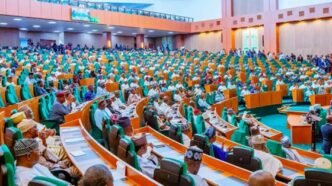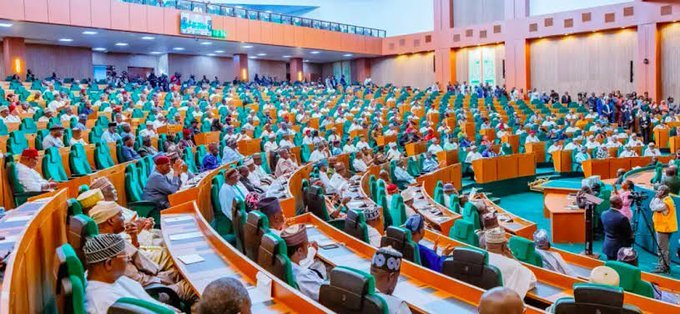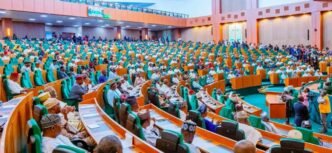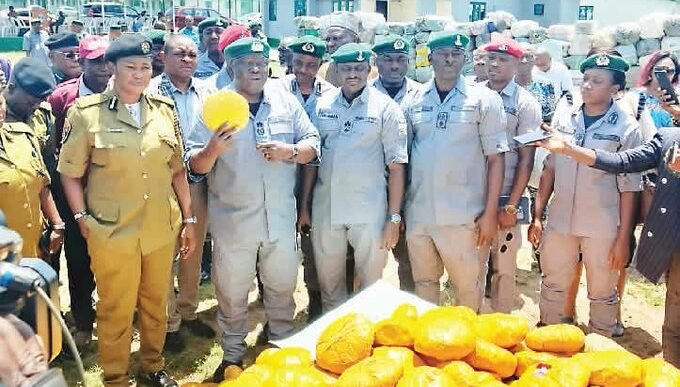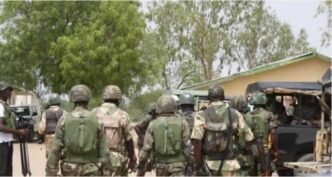BREAKING: Bill to Create “Ibadan State” Scales Second Reading in House of Representatives
Abuja, October 9, 2025 — In a dramatic development in Nigeria’s constitutional reform process, the House of Representatives has successfully passed a second reading on a bill seeking to carve a new Ibadan State out of the existing Oyo State. The move signals renewed momentum in demands for state creation and reorganization, particularly in the southwestern region.
What the Bill Proposes
The proposed legislation—commonly referred to as the Creation of Ibadan State Bill—targets the alteration of certain provisions of the 1999 Constitution to facilitate:
- The division of Oyo State into two separate states: a “New Oyo State” and an “Ibadan State.”
- Allocation of local government areas (LGAs) between the two new entities.
- Establishing Oyo town as capital of the New Oyo State, while Ibadan city would remain capital of the reassigned territory now named Ibadan State.
- Renaming the “remaining” portion of the original Oyo State after the separation as “Ibadan State” (effectively making “Ibadan” the continuation of the core territory around the Ibadan metropolis).
According to records, the bill is identified as HB.2439, and is sponsored by Hon. Abass A. Adigun. Before reaching the second reading, it had already passed first reading. (Creation of Ibadan State Bill, 2025)
Parliamentary Floor: Second Reading and Debate
On the day of its second reading, the bill was tabled during plenary, and lawmakers engaged in deliberations over its constitutional, political, socioeconomic, and security implications. Though not all details of the debate have been publicly disclosed, several themes emerged:
- Constitutional viability: Several representatives focused on the rigorous threshold required for state creation, including judicial interpretation and precedent.
- Federal character & equity: Questions were raised about whether the division would unfairly advantage certain zones or ethnic groups, or disrupt existing power balances in Oyo State.
- Feasibility & resource allocation: Some lawmakers questioned whether the new state could be sustainably supported in terms of infrastructure, civil service, revenue base and governance capacity.
- Security and administrative boundary concerns: Others emphasized the challenges of redefining boundaries in an already complex terrain, with possible disputes over local government alignment and resource-sharing.
After debate, the House adopted the bill for second reading through a voice vote, which passed without significant opposition. The bill was then referred to the Constitutional Review Committee for further legislative scrutiny and workshopping.
Legal and Constitutional Hurdles
Creating a new state in Nigeria is not merely a matter of legislative intent; it’s bound by stringent constitutional procedure. Key requirements include:
- Two-thirds support: The proposal must secure two-thirds majority approval in both the Senate and the House of Representatives, particularly from members representing the region in question.
- State House of Assembly endorsement: A three-quarters majority of the state assemblies in the affected area must approve.
- Local Government Council support: A majority of LGAs in the “affected area” (i.e. LGAs that would constitute the new state) must endorse the proposal.
- Referendum: After passage through the legislature, the proposal must go to a referendum in the affected area, and succeed by two-thirds majority among voters.
- Final legislative adoption: Following referendum approval, the National Assembly must finalize the amendment and transmit to the President for assent.
These requirements have historically presented major obstacles; no new state has been successfully created in Nigeria since the return to democracy in 1999.
State of Oyo: Reactions and Stakes
Government and Political Actors
- State leadership: The government of Oyo State (governors, state legislature, political elites) has been under pressure to formally respond to the bill. Expectations have ranged from cautious engagement to outright opposition, depending on perceived impact to unity, economy, and political alignment.
- Local Council actors: LGAs that might be transferred to the new state are watching closely; some may view the change as an opportunity for greater autonomy, while others fear budget or infrastructure shortfalls.
Civil Society, Traditional Institutions & Public Opinion
- Traditional rulers & community leaders: Voices within Ibadan and surrounding areas have for years called for a distinct political entity centered on the city’s identity and economic weight. Some see the bill as the fulfillment of long-held aspiration.
- Youth and advocacy groups: Many have framed the proposal as part of a larger push to bring government closer to the people, relieve administrative bottlenecks, and spur local development.
- Skeptics and critics: Some dissenting opinions caution that creating states for political expediency often leads to duplicative cost burdens and may not meaningfully improve governance. They warn of fragmentation, boundary disputes, and resource diversion from pressing national priorities.
Residents in Affected LGAs
- Inhabitants of border LGAs proposed for reassignment are concerned about disruptions: shifts in administrative allegiance, taxation, public service delivery, and identity.
- There is also speculation about how civil servants, pensioners, and institutions would be reorganized between the residual Oyo State and the proposed Ibadan State.
Political Dimensions & Implications
Electoral Calculus
With general elections approaching, the timing of this bill may be politically strategic. Redrawing boundaries can impact voter bases, political alignments, and electoral strength of parties within Oyo and the proposed new state.
Federal and Regional Dynamics
Southwest Nigeria has long hosted agitation for new states (e.g. in Ijebu, Ife, Oke-Ogun regions). This bill adds to the mix of state-creation demands in the region, and may spark competition, collaboration, or tension among states and zones.
Cost of Governance
Critics often point to the administrative costs of new states: building capitals, civil service structures, duplication of agencies, and the burden on the federal allocation pool. Proponents argue that over time, closer governance and better resource distribution will justify the investment.
What’s Next? The Legislative Journey Ahead
- Workshopping by Committee
The Constitutional Review Committee will scrutinize the bill clause by clause, assess submissions from stakeholders, and possibly hold public hearings. - Committee Report & Amendments
Findings will be compiled into a report. Amendments may be proposed based on input from state governments, LGAs, civil society, and legal experts. - Third Reading & Final Passage
If the committee report is accepted, the bill proceeds to a third reading in the House. If passed, it moves to the Senate for a parallel process of readings and committee work. - Senate Consideration & Approval
The Senate must adopt the bill (with required majorities) before it is transmitted to the state House of Assemblies for concurrence. - State Assemblies, LGAs & Referendum
The Oyo State House of Assembly (and possibly neighboring states, depending on boundary effects) will vote; LGAs in the affected area will cast ballots in a referendum. - Presidential Assent
Once legislative and popular thresholds are met, the President’s signature will enact the constitutional amendment and bring about the birth of Ibadan State.
Challenges and Roadblocks
- Constitutional complexity: Achieving all required majorities across federal and state levels is a steep uphill task, especially in contested zones.
- Boundary disputes: Defining — and agreeing upon — LGA demarcations and assets (roads, schools, hospitals, utilities) can lead to legal conflicts.
- Public consensus: Persuading populations in affected areas to vote affirmatively in a referendum demands effective civic education and transparency.
- Financial viability: The new state must prove it can fund itself — with revenue-generating potential, administrative capacity, and infrastructure.
- Resistance from vested interests: Political actors benefiting from the status quo may obstruct proceedings, including state officials, parties, or groups.
Significance: Why Ibadan State Matters
- Urban dominance: Ibadan is one of Nigeria’s largest cities, a cultural, commercial, and educational hub. Establishing a state centered on it would elevate the city’s administrative influence.
- Decentralization push: The bill is part of broader impulses to devolve power more directly to localities and improve responsiveness of government.
- Regional rebalancing: It may trigger ripple demands across Oyo and neighboring states for similar reorganizations and reassessments of zones and identity.
- Electoral landscape: The creation of a new state changes voting blocs and resource allocations in future elections.
Framing the Impact: Voices from Stakeholders
- Supporters likely argue the bill will reduce bureaucratic distance, boost local development, and offer fresh political space to communities overshadowed by Ibadan’s dominance in Oyo State.
- Opponents warn of potential fragmentation, confusion, and heightened costs that may outweigh benefits in the short to medium term.
- Neutral observers and legal analysts emphasize that success will largely depend on execution, clarity of demarcation, financial planning, and inclusive stakeholder engagement.
Final Word
The passage of the Ibadan State Creation Bill at second reading marks a pivotal juncture in Nigeria’s constitutional reform and state-creation debates. Having cleared a major legislative hurdle, the road ahead is fraught with legal complexities, political negotiations, and public scrutiny. If the bill ultimately becomes law, the new Ibadan State could reshape political, economic, and administrative realities in southwest Nigeria.
For now, the spotlight is on the Constitutional Review Committee, the Senate, state assemblies, and the people of Oyo State to determine whether the vision of a new Ibadan State becomes a constitutional reality.

